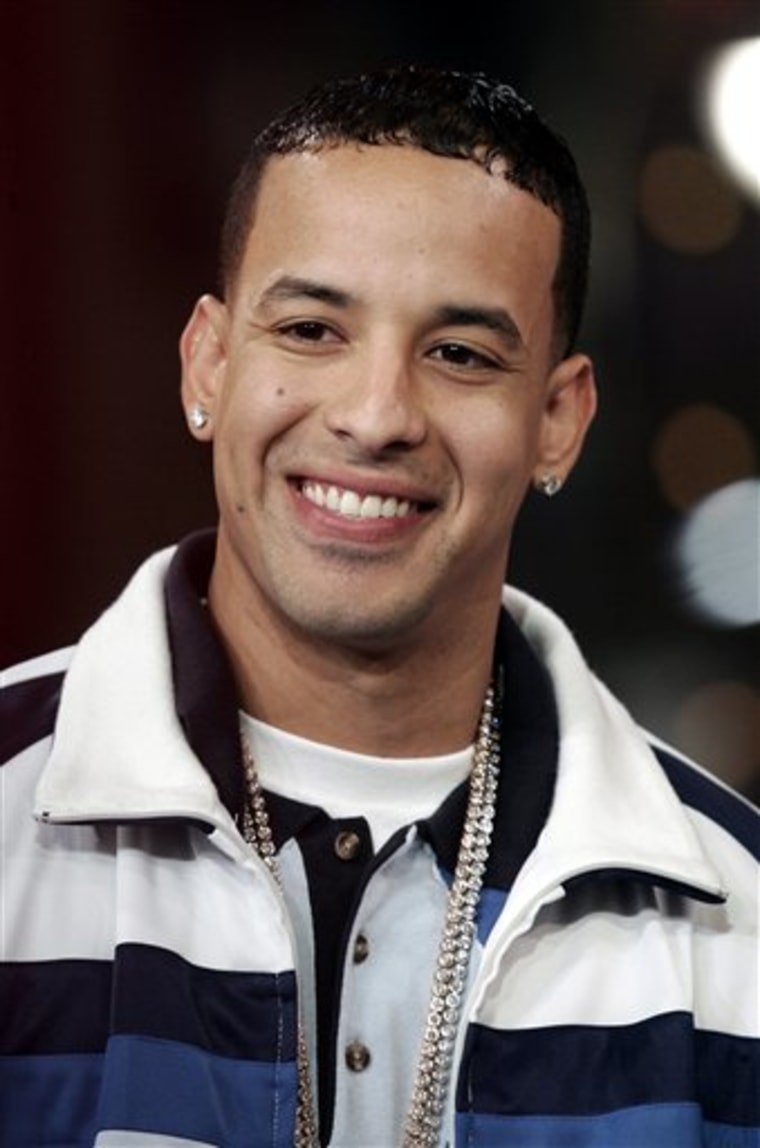Not long ago, a reporter in Mexico City put singer Juanes on the spot at a news conference when he asked the Colombian performer why he had once rebuffed Jennifer Lopez.
After insisting that Lopez was a very nice person, Juanes explained that singing in English — as she had proposed — was “not my thing.”
Bucking a trend of the late 1990s, which assumed that in order to make it big in the United States Hispanic artists needed to sing in English, Juanes has never done so — nor does he need to.
According to his record company, Juanes (full name Juan Esteban Aristizabal) has sold more than 850,000 copies of his latest record, “Mi Sangre” in the United States. Worldwide, the album has sold two million. In a clear indication of his global appeal, the South American star was chosen to perform — in Spanish — at both the World Cup 2006 selection ceremony and the Nobel Peace prize ceremony in December.
Changing populationTwo factors have apparently spurred growth of the Spanish-language music market in the United States. The main one is the burgeoning Hispanic population, currently more than 42 million — practically a country within a country.
Some in the music industry also say there is increased interest for Latin music on the part of Anglos, although that may just be wishful thinking.
At the recent Latin Grammy awards in Los Angeles, powerful Miami-based music impresario Emilio Estefan said the boom of Latin artists singing in English was basically over and the new trend was more and more music in Spanish.
Juanes is not the only Latin musician to forego efforts to make the so-called crossover — singing in English to score significant sales in the United States.
Other performers making successful inroads in the U.S. market using their native tongue include Alejandro Fernandez, 250,000 copies of “A Corazon Abierto”; Sin Bandera, 300,000 records sold with “De Viaje”; Julieta Venegas, 200,000 copies of “Si.” In 2004, Mexican pop group Los Temerarios earned a platinum record (a million records sold), as did their fellow countrymen Los Tigres del Norte, norteno stars, this year with “Jefe de Jefes.”
Colombian super star Shakira, however, is the exception to the new rule. She released two records in 2005, with different songs, one in Spanish, “Fijacion Oral Vol. 1,” and the other in English: “Oral Fixation Vol. 2.” The first garnered the highest sales for a record in Spanish in the U.S. in its first week and remained in the upper tier for months. Her second record entered the Top Five its first week, making her the first artist to hover near the top in both languages with two different records in the same week. She won three Billboard Awards for best Latino song, best pop Latino record, and best Latino pop artist of the year.
King of reggaeton

Another artist who sings only in Spanish and has become a world celebrity with his song “La Gasolina” is youthful Puerto Rican performer Daddy Yankee. He quickly became the king of reggaeton, the catchy form of music from the Caribbean that combines different genres including hip-hop and was all the rage this year.
In the border state of Texas, the airwaves are being transformed by migrants mainly from Mexico who want to listen to all-Spanish programming made at home. An article in the Austin American-Statesman described the demise of Tejano music on a radio station, which, for commercial reasons, had to make way for Mexican oldies — such as hits by Jose Jose and Vicente Fernandez — to the chagrin of local Tejano music lovers.
According to Alberto del Castillo, Vice President of Marketing at Fonovisa Records, a Univision company, “it is definitively not necessary” to sing in English to sell in the United States. In a telephone interview, del Castillo said the Latin market in the United States was very broad, but he also attributed increasing sales of Spanish-language records to a larger percentage of Anglo consumers.
“I can’t say it is 50 percent, but it’s a very high share,” he said. In the case of Daddy Yankee, del Castillo said, certainly half of his record-buying public is Anglo.
Different artists find big audiences
John Echevarria, President of Universal Music Latin, whose artists include both Daddy Yankee and Juanes, said you can’t put the two in the same bag.
“Daddy’s success is much more closely linked to that eternal Latin hit in the U.S. mainstream,” he said. “There’s always been a ‘Lambada’, an ‘Asereje,’ a Ritchie Valens.”
Juanes is “something deeper and more serious... It’s the vindication of the language: Juanes said ‘I sing in Spanish because I want to,”’ Echevarria said.
Echevarria’s opinions were echoed to a degree by Rochelle Newman-Carrasco, owner of the Los Angeles-based marketing firm Enlace Communications, who said reggaeton was doing so well because the songs are “very danceable” and it doesn’t really matter if people don’t understand the lyrics.
Regarding artists such as Juanes and Shakira, whose songs are driven by their lyrics, she said their followers in the United States are mostly young Latinos, who are the ones who buy records, and who make up a large percentage of the Hispanic population.
Although she said U.S. consumers “were opening up” to other languages and cultures, she rejected the theory that Latin artists were truly penetrating the mainstream market.
The main base for Latin artists performing in Spanish in the United States are Latin sales, Newman-Carrasco said.
“Anglo sales are just like the gravy,” she added.